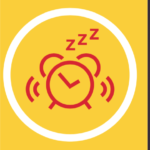It’s time to make space to think, writes Dorie Clark
Walks have a distinguished role in business. Many leaders and strategists mention how marching outside, through the streets or the park, triggers their best ideas. Stanford University discovered that taking a walk is the single thing in business most likely to make you more productive.
Contract-winning ideas have been won on the back of an afternoon stroll. Fresh air, it turns out, is a powerful catalyst for innovation. Sitting at a desk, devouring the endless Niagara of data, is massively overrated. As the entrepreneur Derek Sivers says, “If more information was all that we needed to be successful, we’d all be billionaires with perfect abs.”
A disrupted world calls for lateral strategic thinking. The new age of the ecosystem is a time where the companies that succeed will look outside their industry and discover opportunities to create customer value through new partnerships that span traditional silos and sectors. You won’t find the perspective you need by locking down your thinking.
Studies show that almost identical numbers of senior businesspeople think that spending time on strategy is key to success (97%) as think they lack the time to spend on strategy (96%). This paradox – that we don’t do what we need to – goes to the very core of why companies are going wrong in the age of information overload.
If we think strategy is so essential, why are we not making space for it, going for walks, experiencing the world outside our windows? The answers are: negative perceptions and perverse incentives. In much knowledge work, it is hard to quantify in real time the impact an employee has on the business. Therefore, face time – hours at work – has become a proxy for productivity. Employees who take time to think strategically – such as on walks or with unstructured time – risk looking like slackers. Meanwhile, those who work extra-long hours, 50 or more a week, are paid an average 6% more than colleagues who work normal hours.
Yet research has shown that’s exactly the wrong thing to be rewarding. Stanford University discovered that the point on the work-time curve that begins to attract a pay premium – 50 hours a week – is also the exact point where one’s total productivity starts to decline.
But perverse external incentives, as formidable as they are, might be a lesser force than those within us. In 2014, the Oxford English Dictionary first permitted ‘crazy’ as an adverb, as in ‘crazy busy’. This phrase is now ubiquitous. It can confer on the speaker a pride in being extremely busy – being important and in demand. Busyness has become a form of status. Yet being busy simply means being at the mercy of someone else’s schedule. It is not a badge of honour. It is not a mark of prestige. It is a passport to distraction.
These forces – organizational and internal – are preventing us from doing the exact things that we need to do to improve our productivity, and boost our rate of innovation. So how do we fight back?
There are three key countermeasures that leaders can employ.
Countermeasure #1
 Recognize the 15-minute power break
Recognize the 15-minute power break
Leaders must recognize that it does not take a lot of time to set aside time for thinking. Time for away-days, for two-day residential retreats, almost never come when you are a leader. David Allen, the productivity expert, says: “It doesn’t take time to come up with a great idea, it takes space.”
What he meant was mental space. We have to wilfully shut out – for just a moment – the emails, the demands, and make mental space. You can make that time for good strategic thinking in the time you have –15 minutes, 30 minutes. You don’t need much.
Countermeasure #2

Understand where your time is going currently
In winter 2018, I embarked on a time-tracking experiment. Every day in February I marked down every 15 minutes between 9am and 6pm, to see where that time went, and where it was being wasted. You need to identify the pockets where you can build in more time for strategy.
Countermeasure #3

Reframe what busyness means
Shift from a culture where busy means you are important and in demand to meaning you are in control of your own time. If we can make that shift in our own minds, we can realize that busyness is a choice.
First steps
How do we begin this journey? By accepting that strategy is important, we are already on the right path. It is the second step that leaders find much harder: if we know that strategy is important, we have to stop making excuses not to do it.
Leaders have a perverse bias towards busyness. Making the case to others for their having thinking time is relatively easy. Making the case to themselves is infinitely harder.

